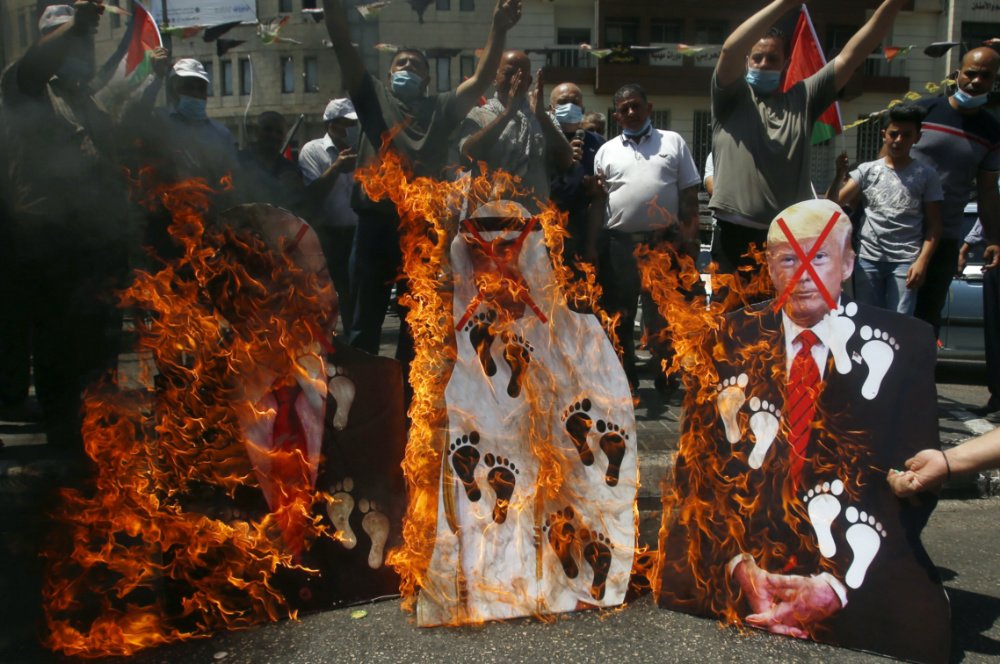For the first time in more than a quarter-century, a US President will host a signing ceremony between Israelis and Arabs at the White House, billing it as an “historic breakthrough” in a region long known for its stubborn conflicts.
But while the optics of Tuesday’s event will evoke the groundbreaking agreements that ended decades of war between Israel and neighbouring Egypt and Jordan, and that launched the peace process with the Palestinians, the reality is quite different.
The United Arab Emirates will establish diplomatic relations with Israel, a fellow US ally it has never gone to war with, formalising ties that go back several years. The agreement cements an informal alliance against Iran and could pave the way for the UAE to acquire advanced US weapons, while leaving the far more contentious Israeli-Palestinian conflict as intractable as ever.
That hasn’t stopped President Donald Trump from referring to the UAE deal, which was announced last month, as heralding a “previously unthinkable regional transformation.”
A similar agreement announced Friday with Bahrain, which welcomed a visiting Israeli Cabinet minister as early as 1994, also formalises longstanding ties.
The agreement with Bahrain has raised the possibility that Saudi Arabia – the ultimate prize in Israel’s normalization drive – could follow suit. Bahrain’s Sunni monarchy is closely allied with Saudi Arabia, which helped quash a popular uprising among the island nation’s Shiite majority in 2011. Saudi Arabia has quietly acquiesced to the UAE deal, opening its airspace to commercial flights between Israel and the Emirates.
But it’s debatable whether agreements like these, among already friendly countries, do much to advance regional peace.
The region’s main conflict pits Israel and the Gulf Arab countries against Iran and its proxies. In the long term, many believe the biggest threat to Israel’s survival as a Jewish-majority and democratic state is the conflict with the Palestinians, who may soon outnumber Jews in the territory between the Mediterranean Sea and the Jordan River.
The Trump administration hopes that as more Arab countries normalise ties with Israel, it will pressure the Palestinians to return to peace negotiations, which ground to a halt more than a decade ago.
Read the article by Joseph Krauss in Sight Magazine.

